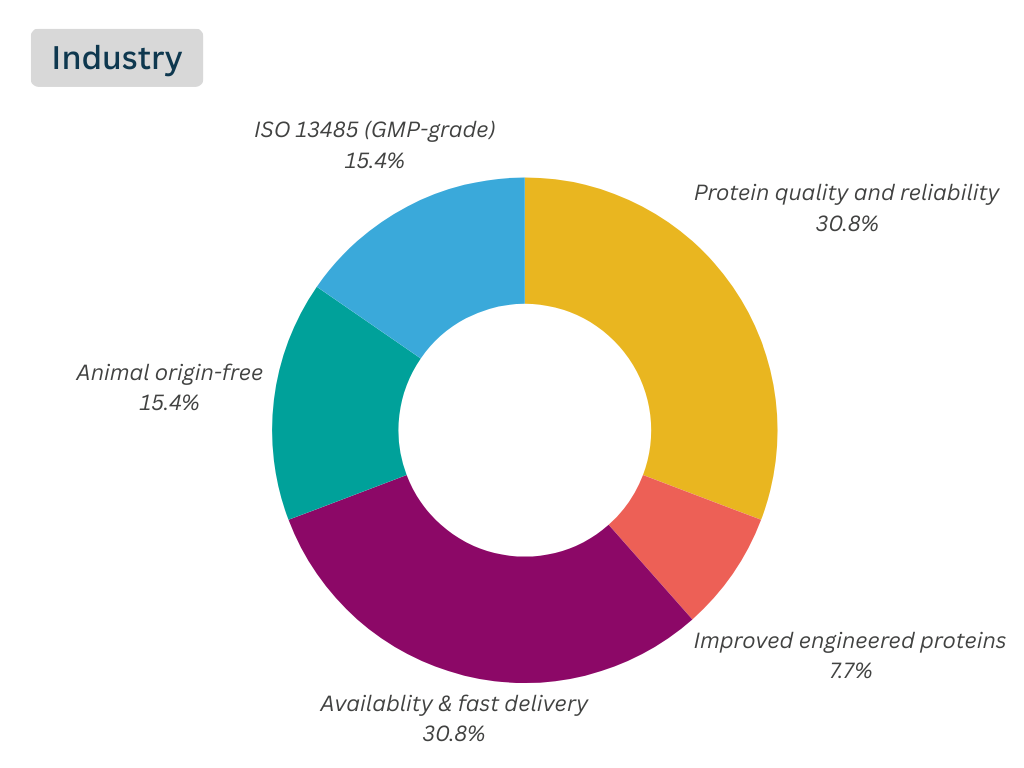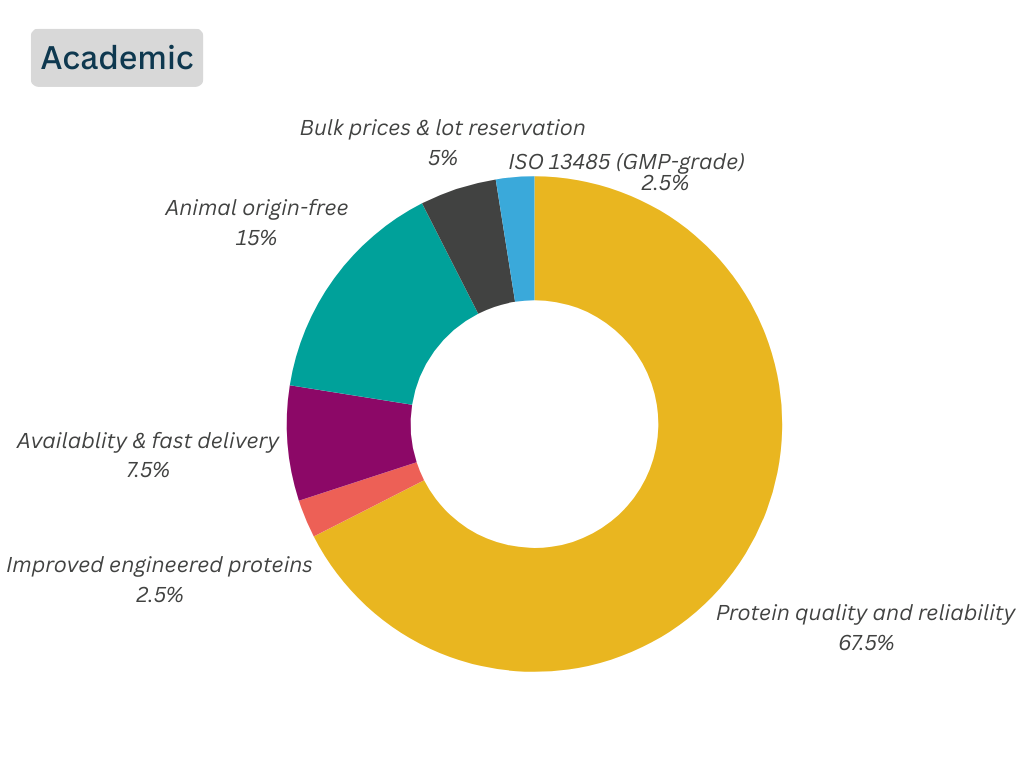Lively discussions, superb scientific sessions and an overriding sense of commitment to advancing human health and well-being made ISSCR 2024 meeting in Hamburg a resounding success.
Qkine is a company run by scientists, and the science is the focus of everything we do.
Our theme at ISSCR this year was stress-free stem cell culture – exploring how suppliers of recombinant proteins can proactively improve the quality, availability and functionality of growth factors to generate experimental outcomes faster, easier and more efficiently.
We discussed priorities for the stem cell science supply chain with scientists from academic and industry labs and had in-depth conversations about the impact of growth factors and cytokines quality on reproducibility and how to integrate new technologies, such as controlled-release and thermostable proteins, to improve the scalability of expansion and differentiation protocols.
Through collaboration, we learn and, together, improve the future of stem cell research.
During the meeting, we gathered informal data from people we spoke with at our stand to explore and highlight priorities for the field. These are summarised below.
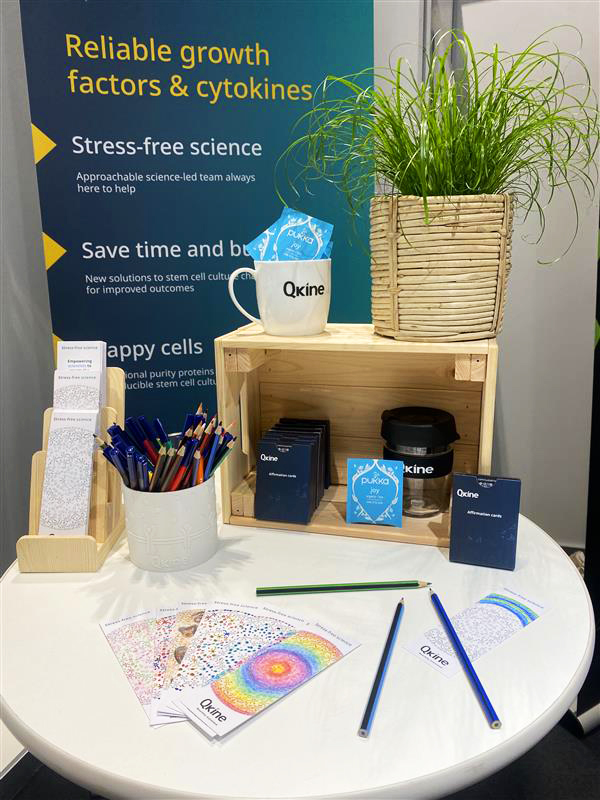
What can help make your stem cell culture stress-free?
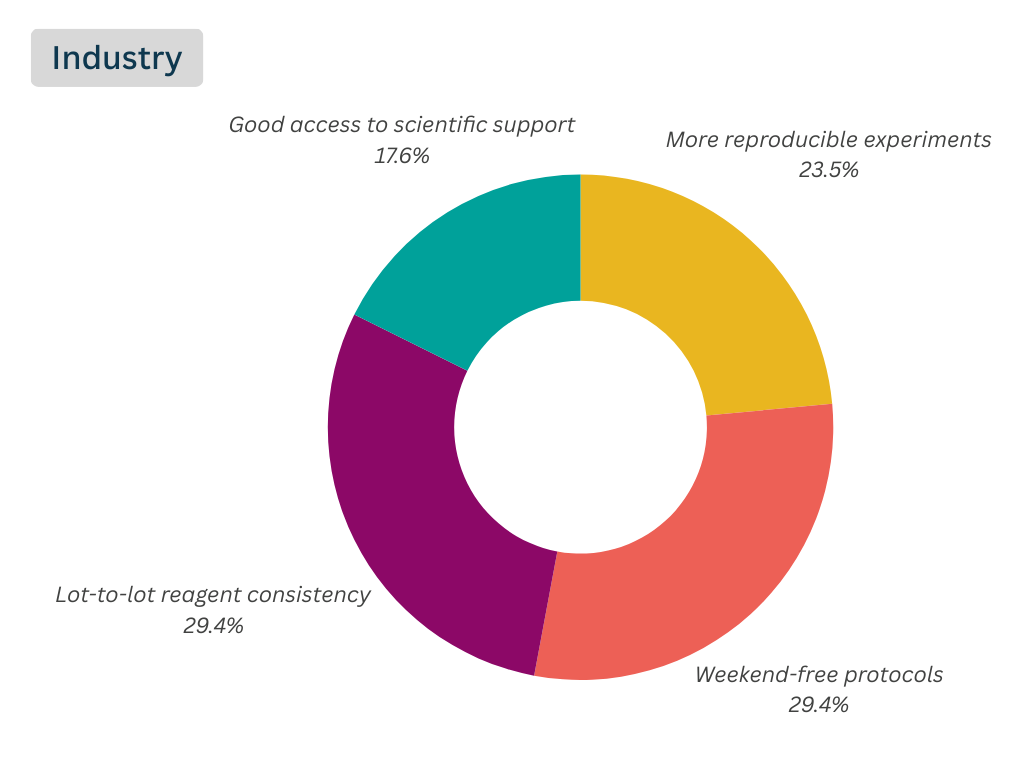
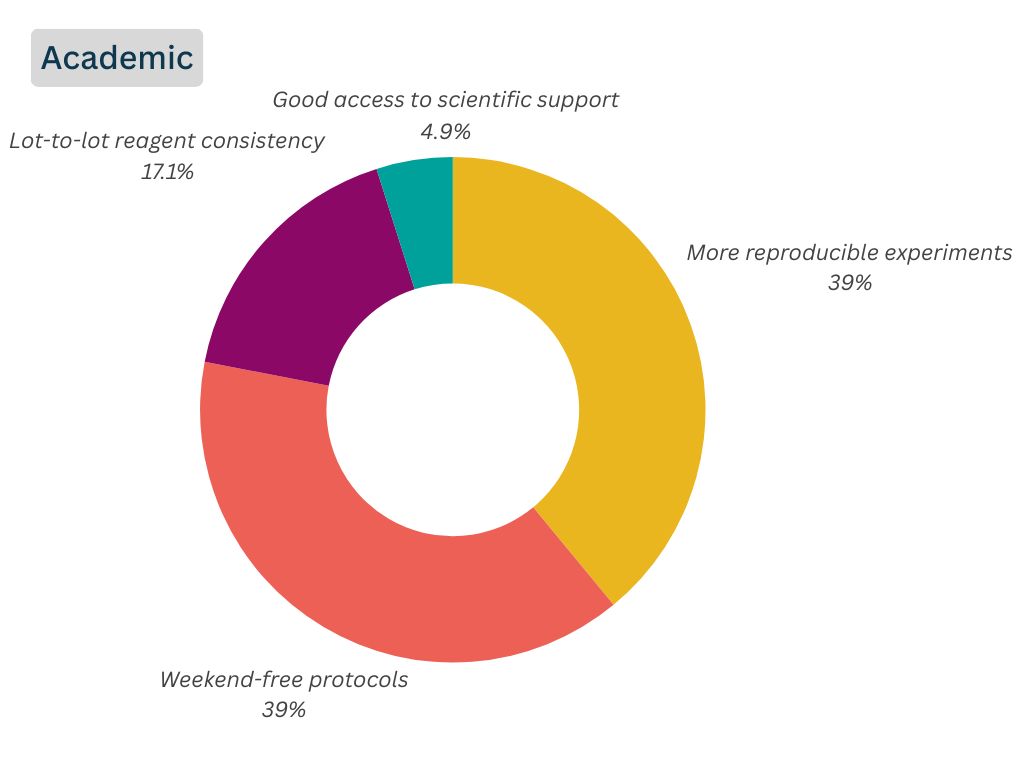
Stress-free stem cell culture? That’s got to be the dream of everyone working in stem cell science!
We wanted to know what matters most to stem cell researchers attending ISSCR 2024. All these aspects are important, but some stood out:
- More reproducible experiments and lot-to-lot reagent consistency. These are closely linked and key to rigorous, reproducible and translationally applicable data. We developed the Qkine Nine-point Quality Commitment so lot-to-lot consistency is guaranteed to improve reproducibility and support future translation.
- Weekend-free protocols. We are proactively evaluating and improving new technologies, such as controlled-release and thermostable proteins, to improve the scalability of expansion and differentiation protocols and working out how these can best be integrated into existing workflows and protocols. Reducing the need to daily media changes reduces media and staff costs and frees up time spent in cell culture for other experiments, testing, data analysis and progressing the project. We work extensively with collaborators to generate peer-reviewed and open-source data. An example is a recent study with Dr Alesssandro Bertero and colleagues, University of Turin DOI: 10.5281/zenodo.12684584.
- We have improved existing thermostable FGF-2 (FGF2-G3) recombinant proteins by removing His tags and providing both forms of the protein 145 aa and 154 aa. A quick start protocol and application note are available.
- The recently announced collaboration with StemCultures provides an alternative, protein-agnostic method for improving stability, with the additional benefit of tunable controlled-release formats.
Which research area do you work in?
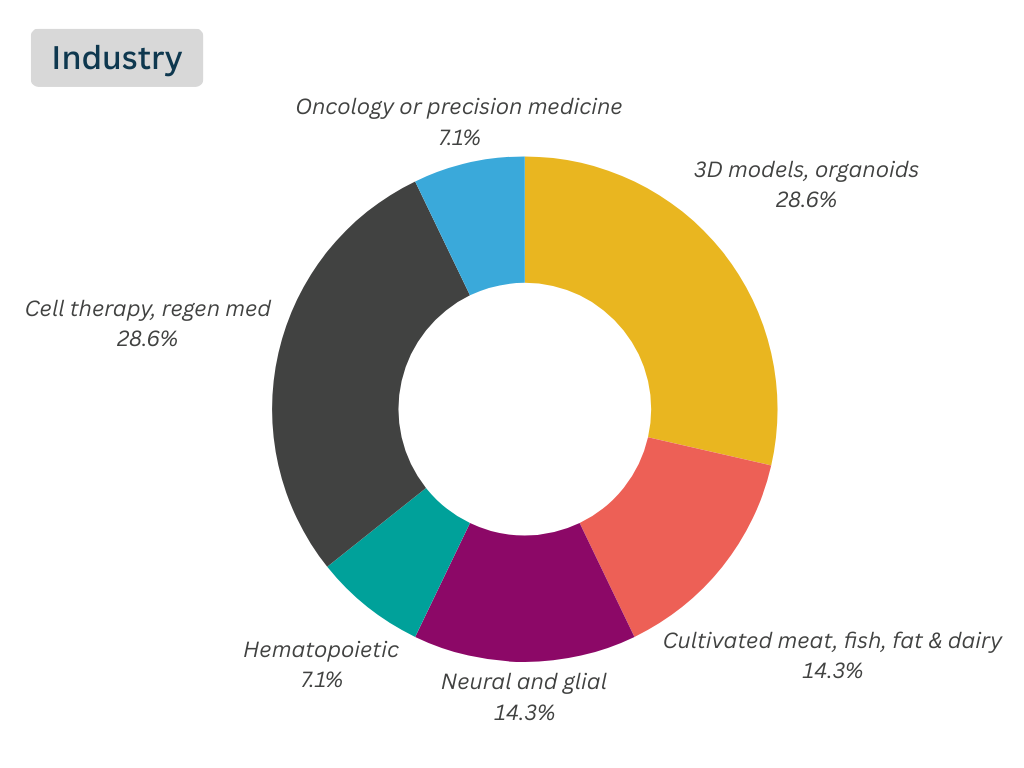
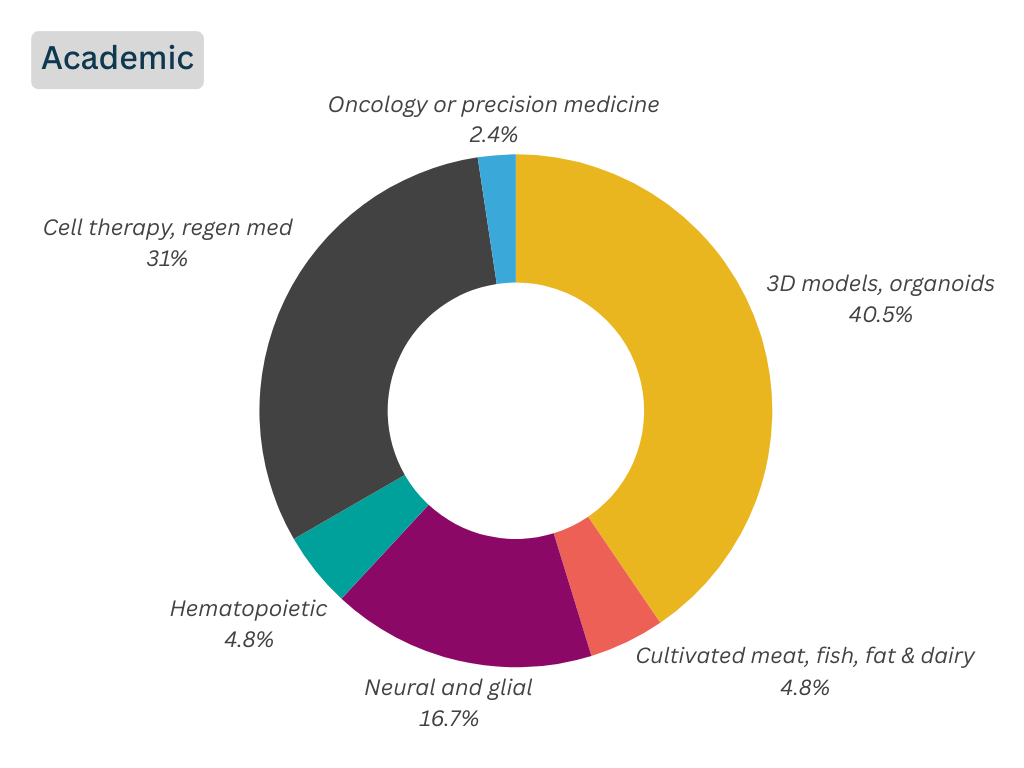
Research and technology themes in the stem cell field have evolved rapidly over the last few years. ISSCR is always a good meeting to provide an insight into trends in the sector. This year the following stood out from our on-stand conversations, workshops and plenaries.
- 3D models and organoids were the most studied in both academic and industrial researchers. This is driven in part by recent supportive messages from the FDA, a drive to reduce and refine the use of animals and animal-derived products with the aim of improving reproducibility and relevance to human disease models. Consistency in media components is essential, particularly during extended culture periods. Organoids and related technologies such as organ-on-chip and MPS have been a focus for Qkine since we were founded. We produce growth factors for all organoid types including intestinal, cardiac, lung, breast, liver and brain organoids. Examples of how supplier innovation can better support the field is our R&D team here developed the only animal-free R-spondin fully optimized for scale-up and replacement of conditioned media, now adopted in several core facilities and biotechnology companies developing 3D cell-based disease models.
- Cell therapy, regenerative medicine. Not unsurprisingly many people are working on translational studies and clinical programmes to explore the future of cell-based therapies. This was a topic of intense interest and progressive discussions in the ISSCR standards workshops, the working groups of which are building on the research standard to start to provide additional clarity and guidance for all clinically focussed stem cell-based technologies.
- Stem-cell-based neural research, fuelled by the complexities of studying neurodegenerative and inherited disorders, was an important research area addressed at the meeting as always. There is a developing interest in the interplay between neural and immune cells and how stem cells can uniquely be applied to study these interactions. Qkine has recently focused on neural and Glial stem cell research products, developing animal-origin-free BDNF and GDNF fully validated in neural differentiation.
- New for 2024 was a marked increase in awareness and contribution of ISSCR membership to the cultivated meat, fish fat and dairy field. This showed the most variation between the academic and industrial researchers, which more of the industrial researchers having this as their main research area. Cellular agriculture has the potential to transform future food production. Qkine is proactively participating in this field with focussed product development and a drive to increase awareness, transparency and scientific rigour. An important aspect of this is our R&D commitment to extending the availability of animal origin-free and species relevant growth factors. We recently launched our high-quality food grade range to simplify the regulatory path for our customers whilst meeting the high standards needed for cultivated meat R&D and robust bioprocess development.
When you choose growth factors and cytokines, what are the most important considerations?
